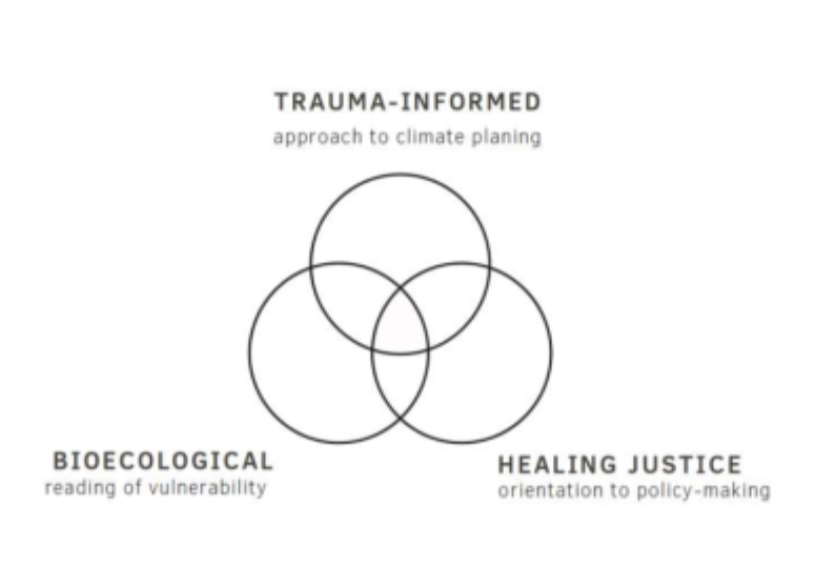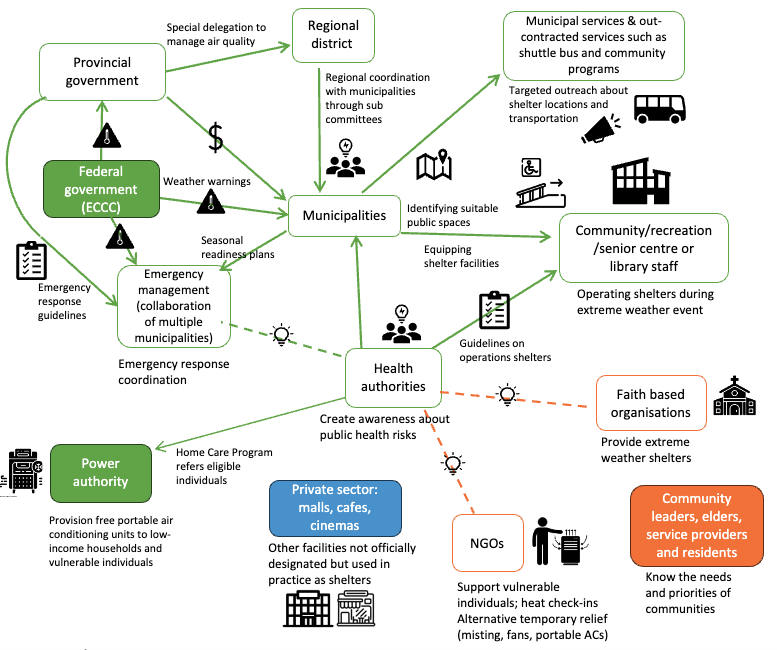City Know-hows

Target audience
Transnational municipal networks such as C40, ICLEI Resilient Cities, UCCRN; Journalistic platforms covering cities (e.g. The Guardian, The Atlantic, Grist, Bloomberg Cities); Media-makers (e.g. How to Save a Planet podcast; OnBeing podcast; Democracy Now; All We Can Save; Heated newsletter).
The problem
Our approach to resilience and vulnerability is narrow and outdated. It barely considers the health implication of climate change on urban populations, and even less so its mental health dimensions. Climate change will likely increase exposure to trauma, so integrating the principles of trauma-informed care and healing justice is urgently needed to design meaningful interventions that foster equitable climate outcomes.
What we did and why
Investigated how ‘official’ narratives and visions of resilience, as found in municipal climate plans, compared to the needs, values, and priorities of populations on the ground – especially vulnerable groups. Convened a public workshop in case study cities to complement document review and key informant interviews with the experiences of frontline groups. Proposed the original concept of ‘integrative resilience’ to stimulate innovation among policy-makers, urban practitioners, and community leaders in transforming the way resilience is planned in cities.
Our study’s contribution
Impacts for city policy and practice
There need to be deeper understanding of local needs, values and priorities when it comes to defining and operationalizing resilience. This approach provides a blueprint for expanding current focus of climate action plans and municipal interventions, complete with preliminary recommendations for new indicators to assess population health and metrics of success. This model equally applies to systemic crises such as COVID-19.
Further information
Full research article:
Related posts

How will COVID19 change our relationship with public space and the future of city design? We outline the key ways in which city planning and the design of public space may change as a result of the COVID19 pandemic.

Our urban environments are getting hotter, yet urban design and planning solutions which can mitigate heat are rarely used. There is a need for further education and strategic planning policy positions to support heat mitigation policy and practice in the built environment.

Extreme heat and wildfire smoke are a growing concern in cities. Cooling and cleaner air centres can provide a much-needed respite but too often they’re set up reactively and inconsistently. Our study explores what works, what doesn’t, and how cities can design these spaces to be reliable, inclusive, and accessible for all.